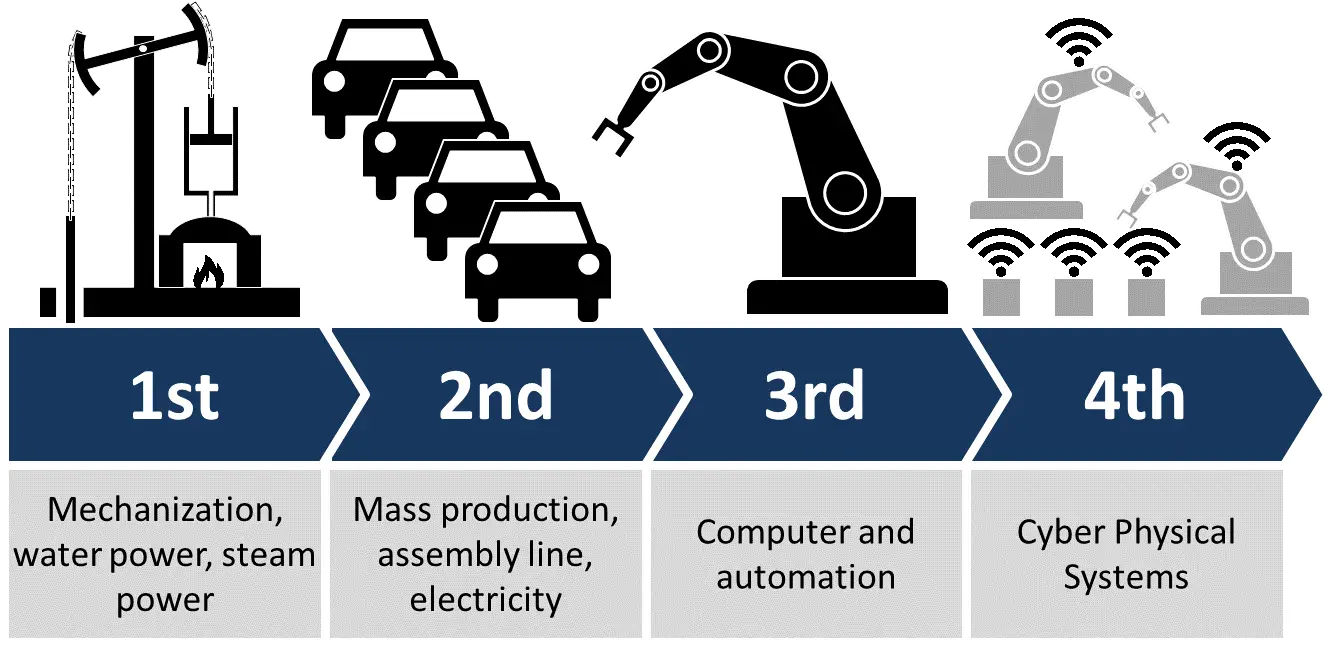Emerging Global Opportunities in Industry 4.0

Industrial Revolution 4 is changing the landscape of industries across the globe. This process promises a wide range of technological advancements across the value chain. Automation or Robotics, the Internet of Things, Artificial Intelligence, Additive Manufacturing, and other technologies transform traditional manufacturing processes.
The updations in technology are explicitly revolving around the manufacturing industry, where the 'natural' and 'virtual' worlds are seamlessly connected, resulting in cyber-physical production systems. Industry 4.0, which originated in Germany, is now being embraced by countries around the globe. Developed countries such as the United States, France, and Japan have already taken the first step in this approach by starting national-level initiatives.
The difference between the real and virtual worlds is becoming excessively blurred due to more significant usage of digital technology, giving rise to cyber-physical production systems. A movement that began as a brainchild of Germany has grown into a must-do task for corporations and governments looking to improve their manufacturing ability. Organizations are beginning to devote more time to innovation-driven manufacturing research and development.
According to the World Economic Forum's 'Future of Jobs' survey, several abilities that aren't considered necessary in today's context will make up one-third of most occupations' desired core skill sets. With greater digitalization, such a shift in skill requirements is envisaged. Many duties involving technical skills, such as debugging machine faults, and resource management skills like personnel and time management, would be removed with the introduction of automation and artificial intelligence.
As per the mentioned survey, the percentage of positions requiring technical skills and Resource Management Skills as part of their core skill sets is predicted to decrease. Still, the demand for technical skills needed for repairing and maintaining operations is expected to increase. The number of jobs that require cognitive abilities as critical abilities will increase.
Industry 4.0 allows for mass customization, giving businesses more flexibility to satisfy changing client demands. Customers increasingly prefer more flexible and configurable outputs over traditional product offerings. For example, Adidas, the world's largest sportswear company, has been running its 'miAdidas' mass customization initiative for several years. Customers can tailor and customize their sports footwear to fit their specific performance and styling requirements. Adidas plans to open its first wholly automated plant in Germany as part of its aim to bring manufacturing closer to its clients in their separate regions. This strategy is driven by advanced technology that lessens the demand for workers. Adidas had also presented a running shoe sole made with 3D printing technology as part of this programme.
Businesses' performance measures shift from achieving low-cost efficiency to extracting a more significant return on invested capital. Industry 4.0 boosts profits through more customization, lowering labour expenses and complexity costs, and aiding in reducing capital utilized by allowing greater asset flexibility and utilization. Given the quick obsolescence of technology and offers, corporations seek an early-mover edge in Industry 4.0 to gain a competitive advantage in the global manufacturing race.
The necessary skill set evolves with the changing work environment, and workers' tasks are expected to simultaneously, not replace the current skill sets. Instead, adding more value to these is required. Functioning in an automated world is possible with future-oriented skills and an evolving mindset - the world is getting better, and turning with it is the key to success.
Comments

Leave Comment


 AAYSHA AGARWAL
AAYSHA AGARWAL


Vasu Arora
1-25-2021So true, I'm too missing college.